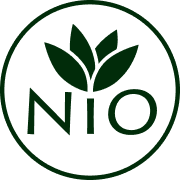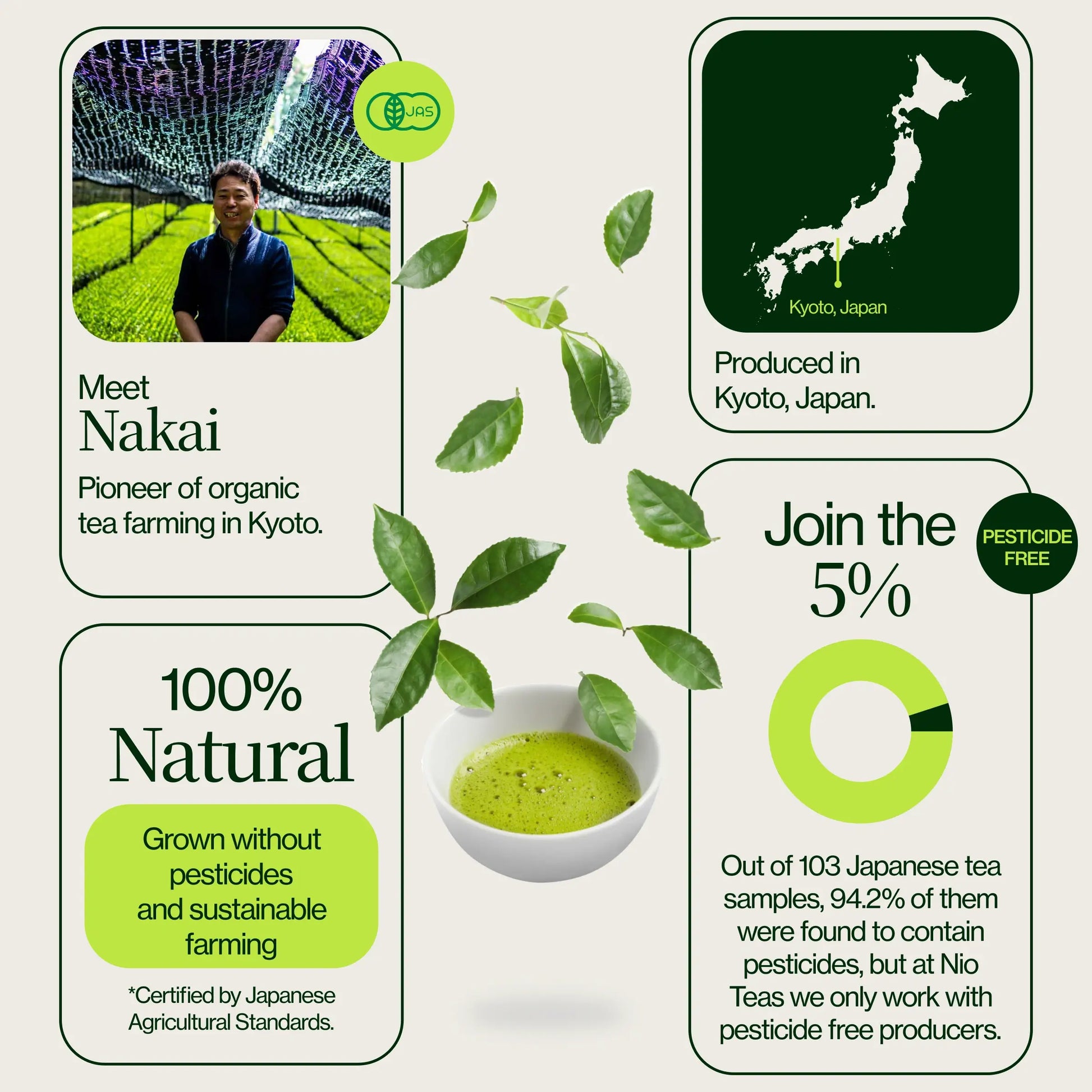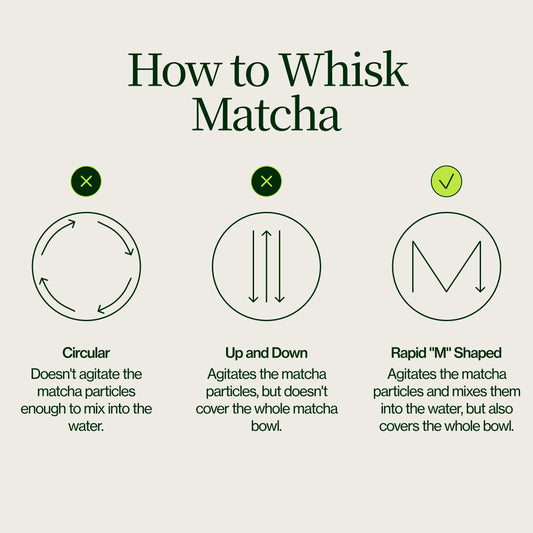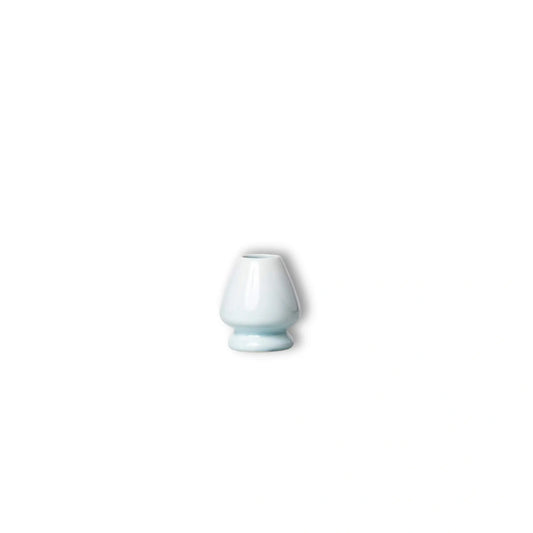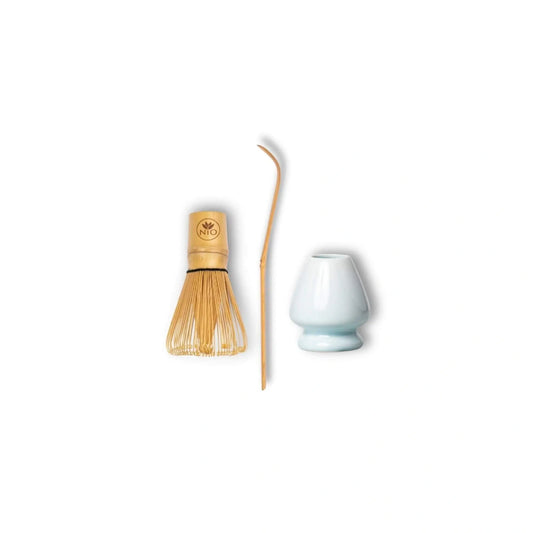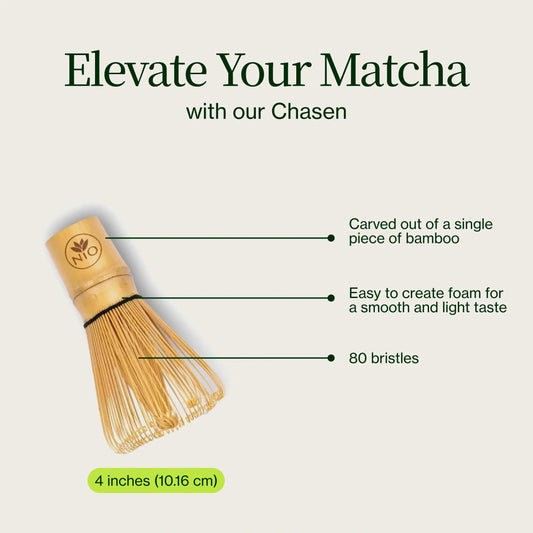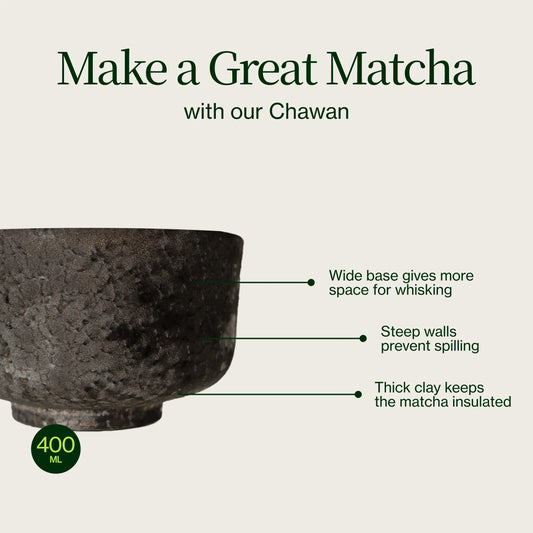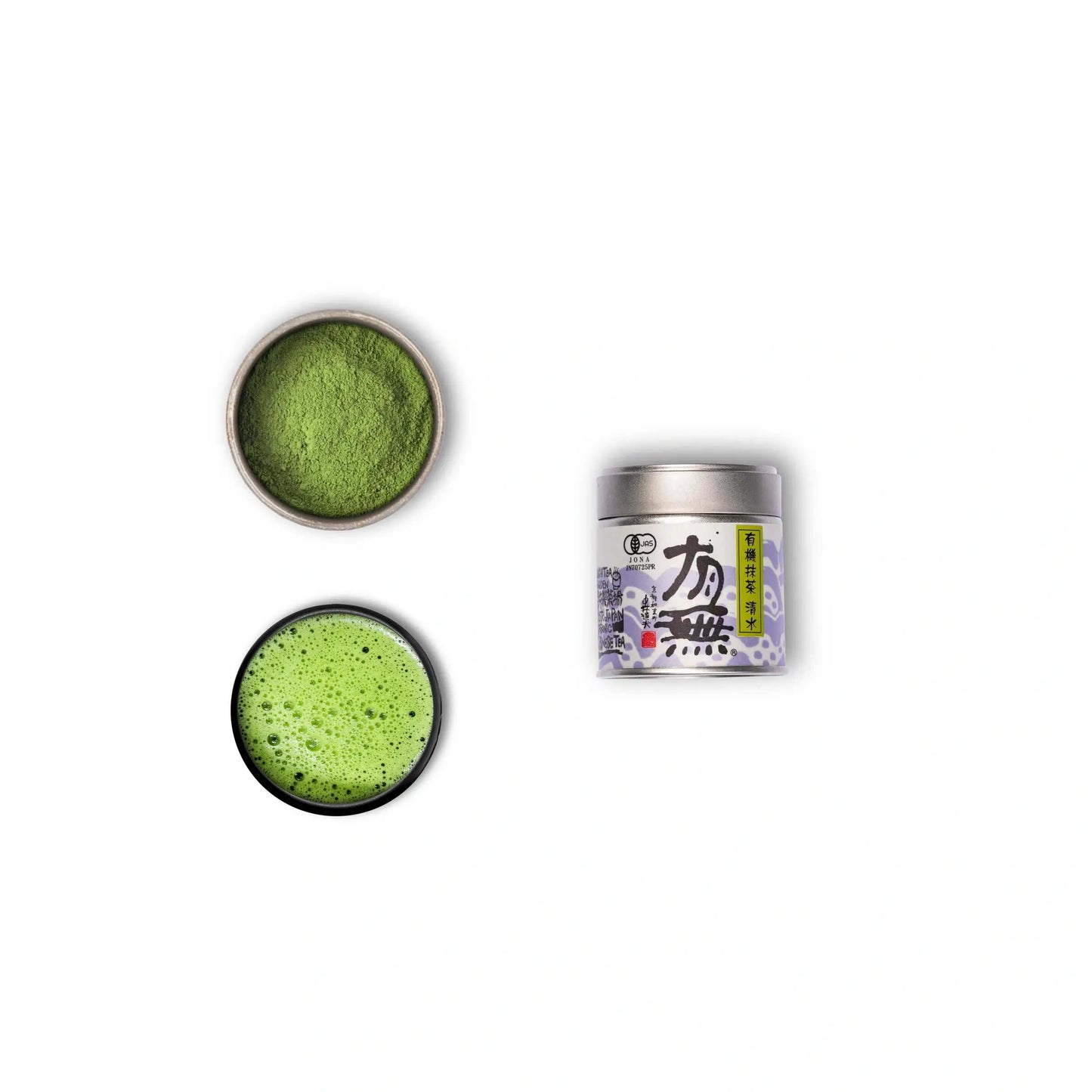
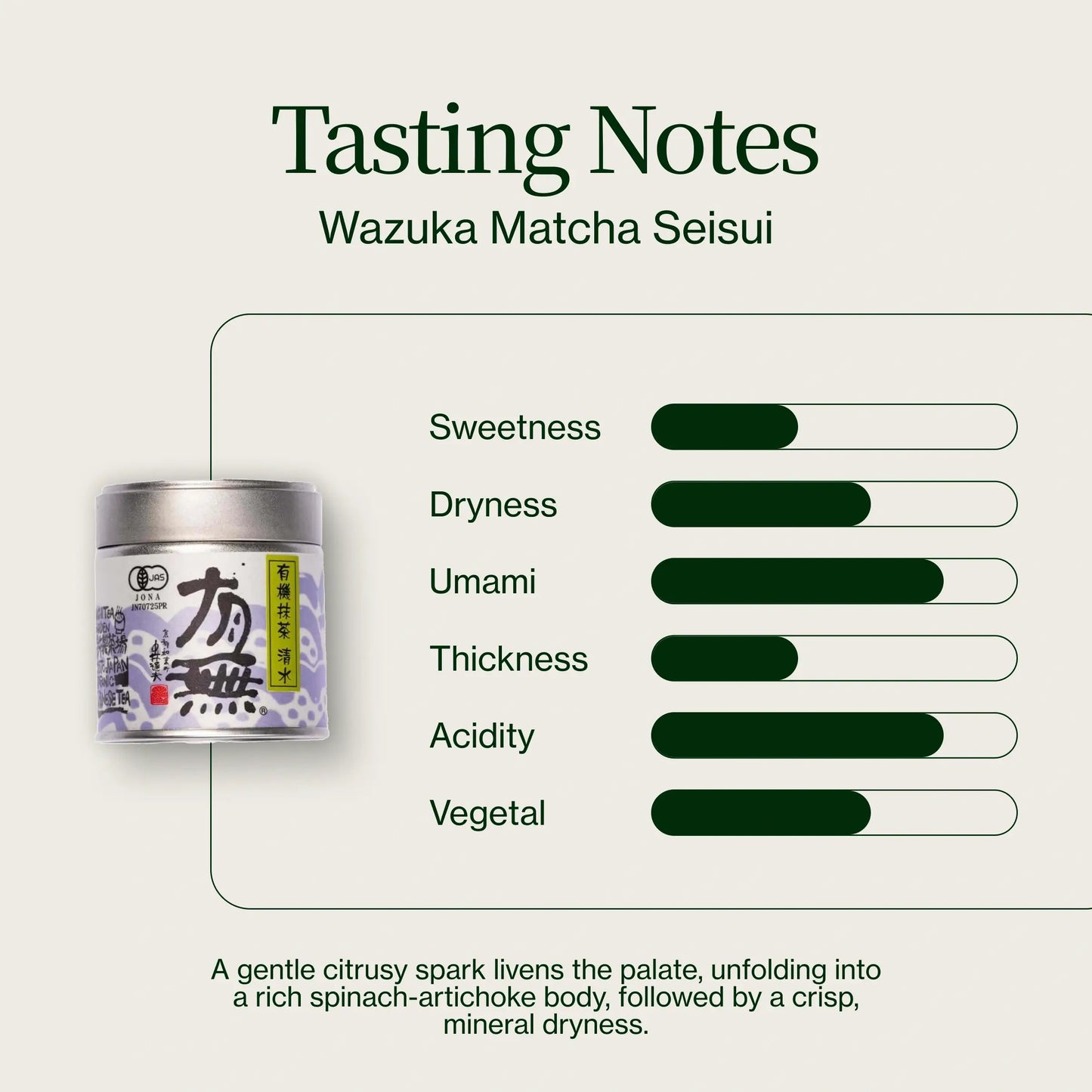


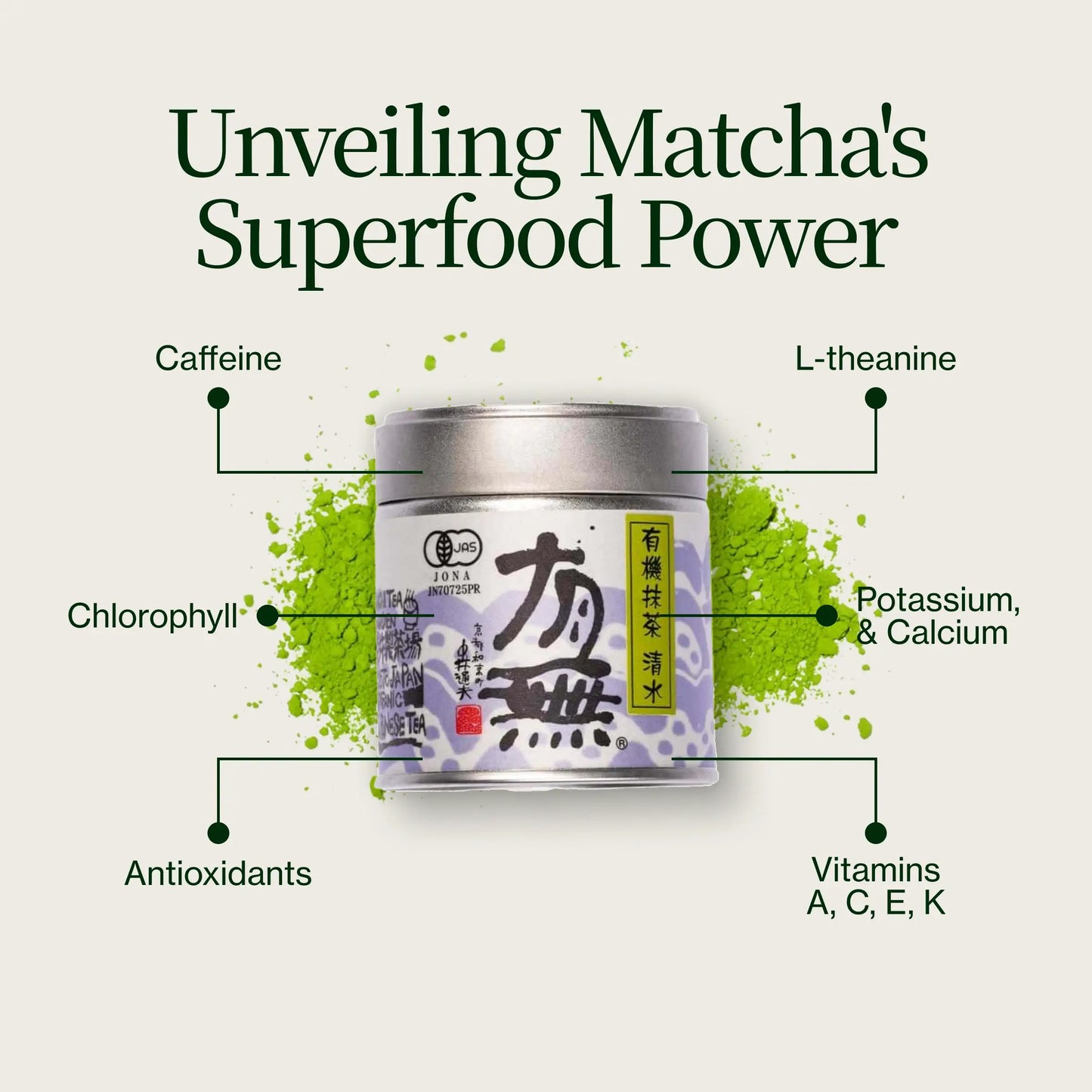
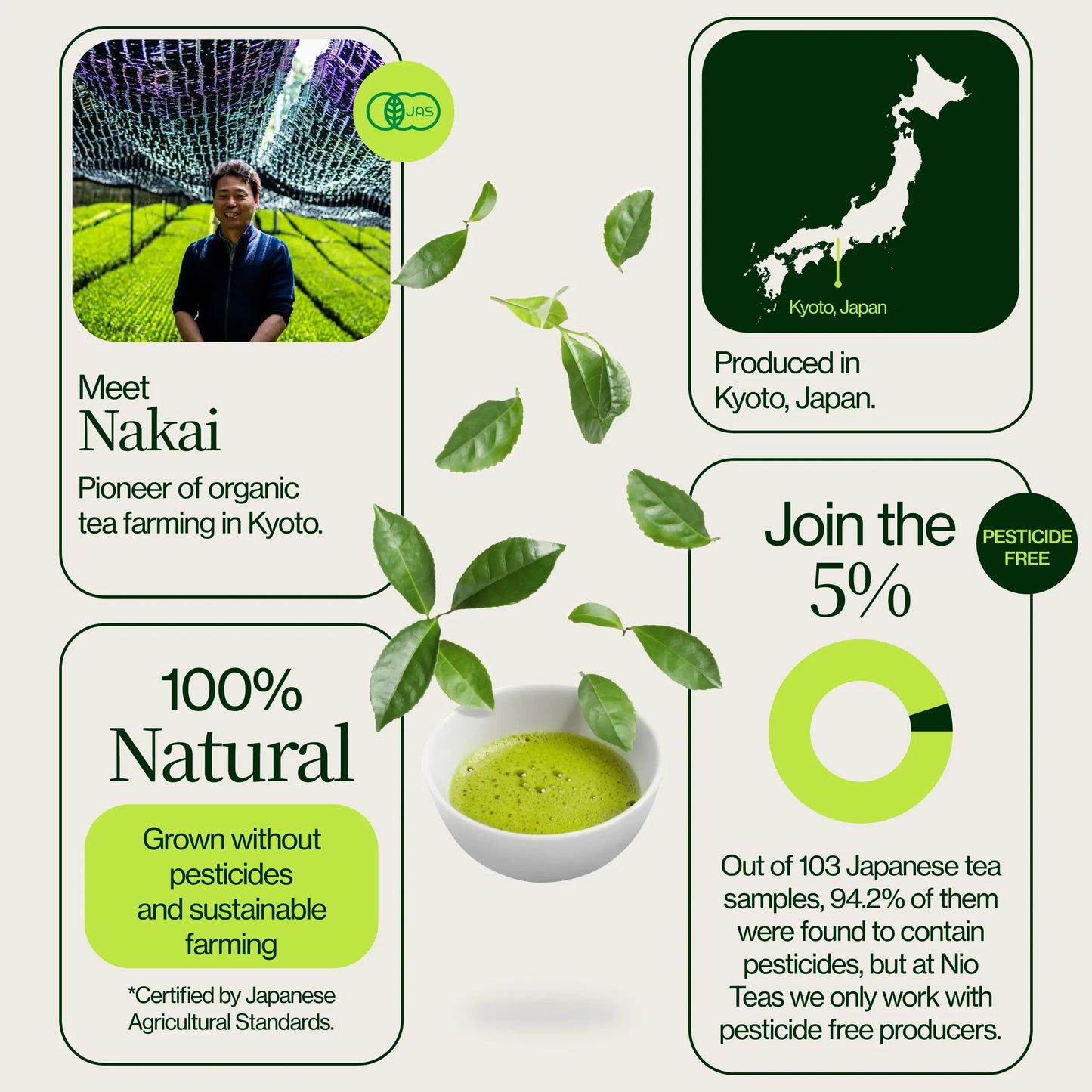







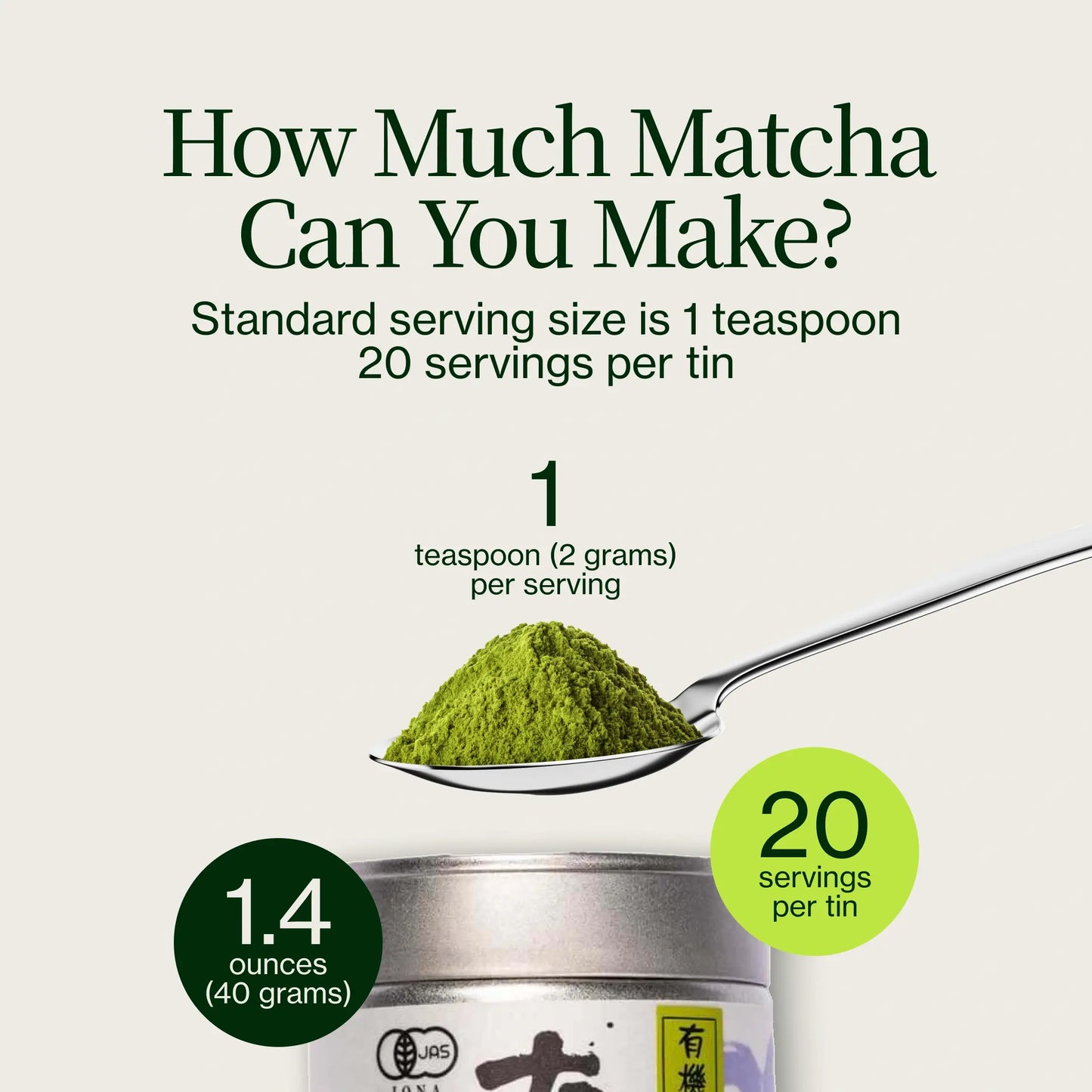




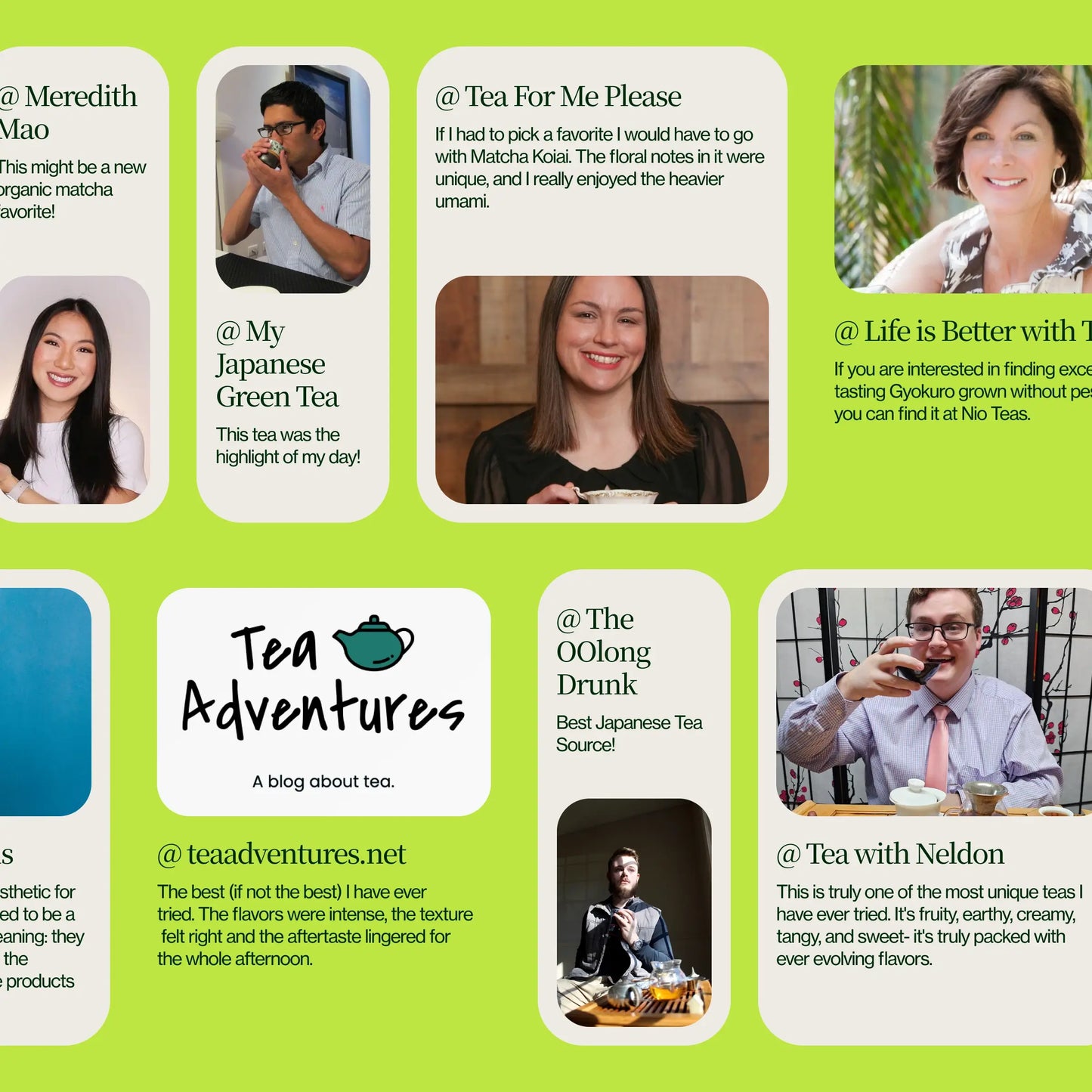
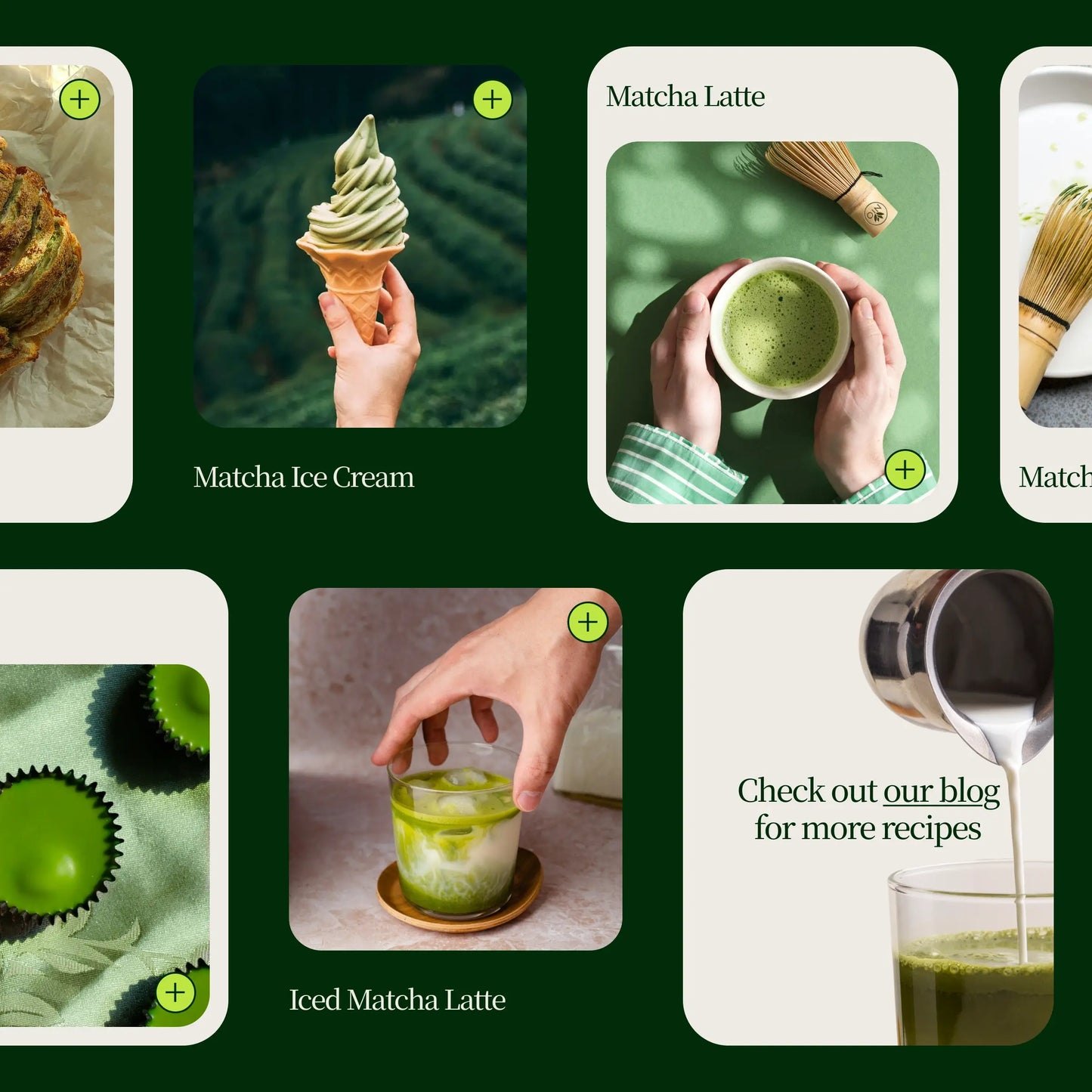
Learn all the secrets of the Wazuka Matcha Seisui
Taste
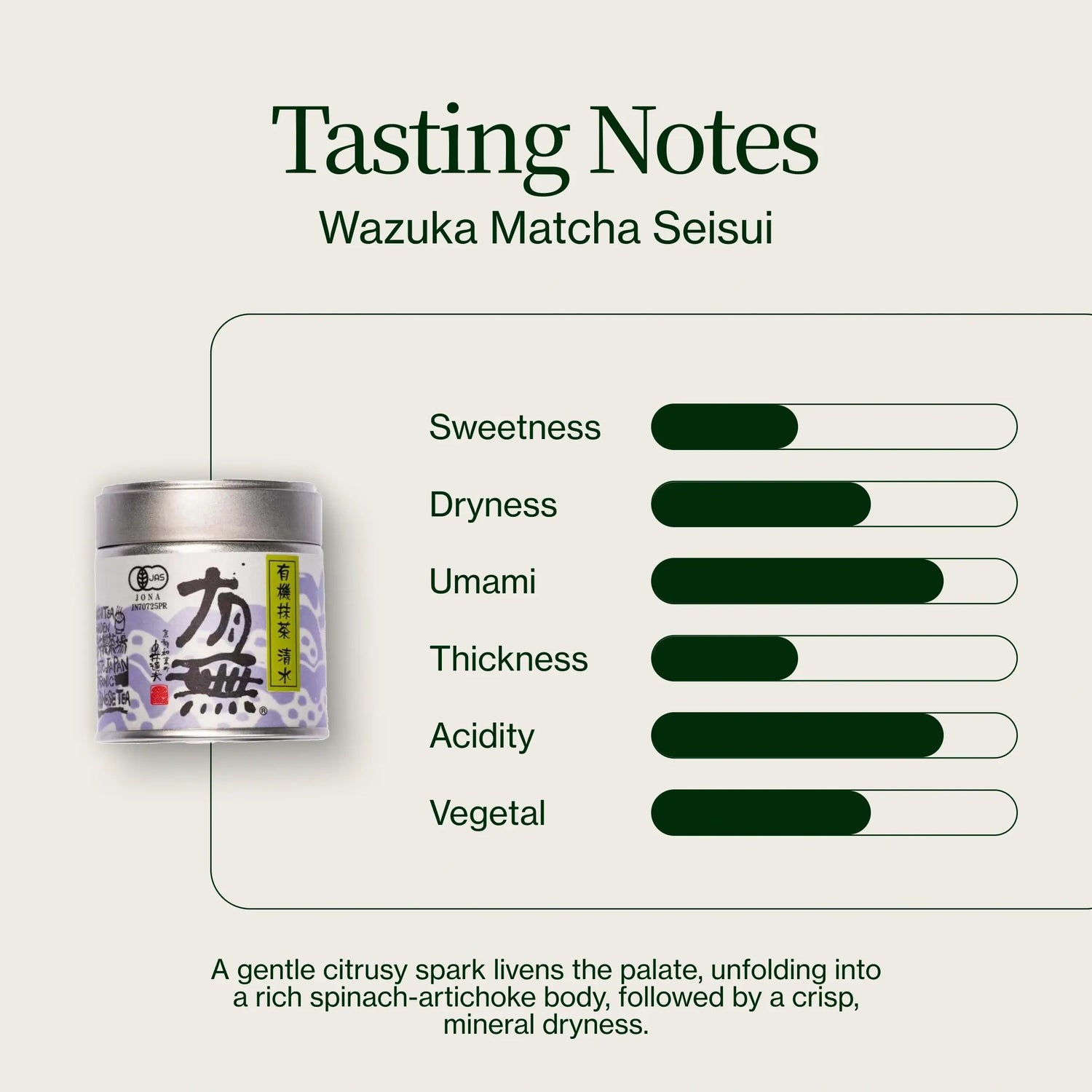
Discover the results of Nio Teas’ 4 step tea tasting method
Step 1 - Observing the Appearance
Step 2 - Assessing the Aroma
Step 3 - Tasting the Tea
Step 4 - Evaluating the sensation on the palate

100% Organically grown and Ethically Sourced
How to prepare the tea
Necessary teaware

Location of production and farmer
Information about the farm

Sourced in Kyoto
Japan
Cultivar and tea plant variety
-
Yabukita
